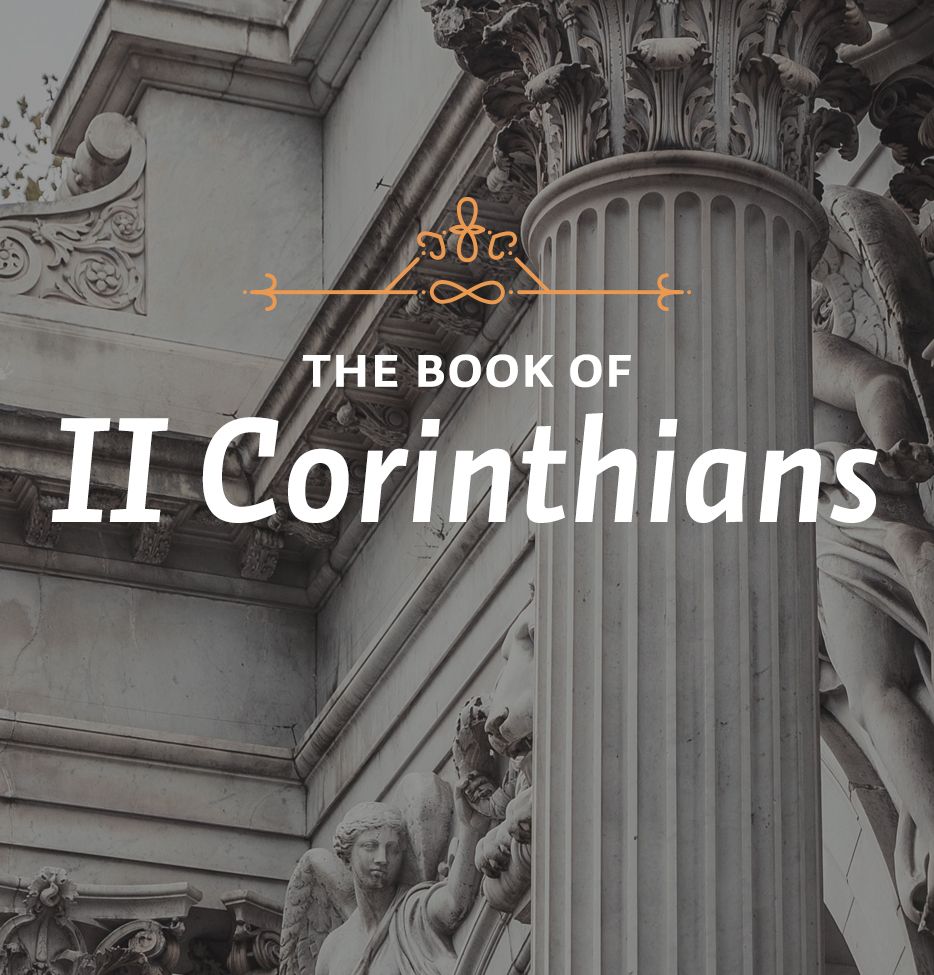Theme: The Lessons of the Thorn
This week’s lessons talk about how God’s grace is sufficient for the individual and personal trials that come from our own weaknesses, limitations, and struggles.
Scripture: 2 Corinthians 12:9
Not only did Paul have a thorn, but it was so debilitating that this very godly man, a man who had suffered so much without complaining, asked the Lord on three separate occasions to remove it, and the Lord did not. Instead, he replied in what is surely one of the greatest and most encouraging verses in the Bible, “My grace is sufficient for you, for my power is made perfect in weakness” (2 Cor. 12:9). That is a text for you if you are suffering from some inescapable affliction.
I have taken a great deal of time in this study to establish the context for Paul’s remarks and show how many Christians suffer from similar ailments. It was necessary to do that. But from this point on I want to explore the text for its lessons about these inescapable burdens. There are at least five of them.
Paul’s thorn was from Satan. In a moment I am also going to show that Paul’s suffering was simultaneously a work of God. The whole point of what Paul is saying depends on the fact that God had his hand on him even in this area. But the fact that God uses evil for his own divine purposes does mean that evil ceases to be evil or that suffering, which flows from evil and is often caused by it, is not real suffering. Paul makes the nature of the case clear when he speaks of his thorn being “a messenger of Satan, to torment me” (v. 7).
I suppose that of all the cruel things that are done to Christians who are suffering—apart from blaming it on some sin they themselves have committed, which is what Job’s comforters tried to do to him—the worst is to minimize or deny the suffering, pretending that it is not really what it is. How easy it is to do that! It is easy to pretend that being confined to a wheelchair is not really very bad, as long as you are not in a wheelchair yourself. It is easy to make light of legal blindness, a loss of hearing, memory or other faculties, as long as you are not blind, deaf, or otherwise afflicted. It is easy to put on a happy face and paint a rosy picture for the cancer patient, as long as you do not have cancer. But that accomplishes nothing, and it is not genuine Christianity. Christianity faces the evil squarely. Even more than others, Christians believe that this is indeed a genuinely evil and terribly painful world.
Paul’s thorn was simultaneously from God. Even though Satan had a hand in Paul’s suffering, as I have just maintained, God was nevertheless ultimately in charge and was responsible. So we can say that Paul’s thorn was simultaneously from God. Paul makes this clear in two ways. First, he uses the passive tense to say that the thorn “was given me” (v. 7). It was God who gave it. Second, he says that he prayed to the Lord to take it from him, which would make sense only if God were in control (v. 8).
This is something only Christians can understand. The first point I made, that evil is evil and should not be glibly explained away, is something the world can say too, though it often doesn’t. The world can call evil, evil— particularly if it is in someone else. Only the Christians can confess that it is also controlled by God. Why? Because we know it is true, even though we may be at a loss to explain how it is. I say we know this because, even though we may not have been able to see it clearly in our own lives or have not experienced it, we have at least seen it in the case of Jesus Christ, our Lord and Savior.
There is no question but that the arrest, trial, and judicial murder of Jesus was a triumph of the most malicious evil. Satan had plotted it, and he accomplished it “with the help of wicked men” (Acts 2:23). Even Jesus called it an “hour…when darkness reign[ed]” (Luke 22:53). Yet at the same time, there has never been a moment in history when God was more evidently in charge. All that happened to Jesus happened that the Scripture, which had been given by God beforehand, might be precisely fulfilled. Peter, when he spoke of the crucifixion at Pentecost, in the same sentence which placed blame squarely on Christ’s wicked persecutors, said, “This man was handed over to you by God’s set purpose and foreknowledge” (Acts 2:23). Then he quoted texts to show that what happened had been prophesied clearly in advance.
So although we freely confess that we cannot fully understand this or explain why certain things are happening, we say as the framers of the great Westminster Confession of Faith did in classical language: “God from all eternity, did, by his most wise and holy counsel of his own will, freely, and unchangeably ordain whatsoever comes to pass” (chap. 3, par. l).
Study Questions:
In what way is Paul’s thorn from Satan? What does that teach us about suffering and evil?
In what way is Paul’s thorn also from God?
What are same ways Christians react to another Christian’s suffering?
Key Point: The Lord did not answer Paul’s request to take his thorn away. Instead, God replied in what is surely one of the greatest and most encouraging verses in the Bible, “My grace is sufficient for you, for my power is made perfect in weakness” (2 Cor. 12:9). That is a text for you if you are suffering from some inescapable affliction.






